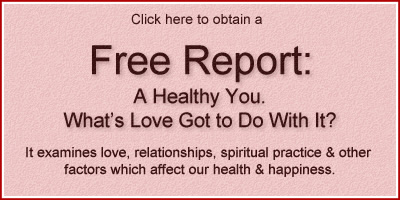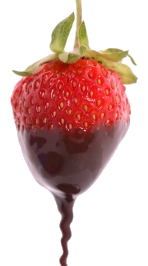Newsletter – 2011 February
Food Feeds the Soul
Food has the power to impact us on a level deeper than just our physical well-being. What we eat can reconnect us to precious memories, like childhood playtimes, first dates, holidays, life cycle events, our grandmother’s cooking or our country of ancestry. Our bodies remember foods from the past on an emotional and cellular level. Eating this food connects us to our roots and has grounding and nurturing effects that go far beyond the food’s biochemical make-up.

Think for a moment of a food from your past, one that makes you feel great after you eat it for no specific reason. Maybe it is macaroni and cheese, slow-simmered tomato sauce, ice cream cones or potato pancakes. Eating comfort foods (every now and then) can be incredibly healing, even though your rational brain might not consider it highly nutritious.
Acknowledging what different foods mean to us is an important part of cultivating a good relationship with food. This month when we celebrate lovers and relationships, it’s important to notice that we each have a relationship with food – and that this relationship is often far from loving. Many of us restrict food, attempting to control our weight. We often abuse food, substituting it for emotional well-being. Others ignore food, swallowing it whole before we’ve even tasted it.
What would your life be like if you treated food and your body as you would treat your beloved – with gentleness, playfulness, communication, honesty, respect and love? The next time you eat your soul food, do so with awareness and without guilt, and enjoy all the healing and nourishment it brings you.
“Let yourself be silently drawn by the stronger pull of what you really love.”
-Rumi
Food Focus: Chocolate
Ahhh! Chocolate!
The thought of it can bring up certain emotions. Chocolate has been associated with love for generations. Almost everyone I know loves chocolate! Many of us have even been known to crave the stuff. But did you know that chocolate has many amazing health benefits?
Cacao is high in iron, calcium, potassium, vitamins A, B, C & D and are known to provide protection against some common chronic ailments such as heart disease, blood pressure and cancer.
Chocolate comes in many varieties: white, dark, creamy, bitter or sweet. Chocolate is a food which originates from the seed of the cacao tree, which is quite bitter in its natural form.
Cacao was used by ancient civilizations, such as the Mayans and Aztecs, to create a chocolate drink which they believed was a divine food. Other parts of the cacao plant were also used for medicinal purposes. Its’ flowers were used to treat fatigue and a cacao paste was used to treat poor appetite.
Chocolate increases the amount of serotonin in the body, which can explain the feelings of pleasure and cravings associated with it.
Although chocolate has a bad reputation, it is due largely to modern commercial preparation process and manufacturing, which often adds a tremendous amount of fat and sugar, as well as preservatives to the chocolate.
Today, there are sources of organic and raw chocolate available. A small amount of chocolate, with a high cacao content can be an incredible part of your life – in moderation of course! Remember that nutritional success is bio-individual. Everyone has different requirements for a healthy, balanced diet.
According to David Wolfe, Cacao (Raw Chocolate) is one of the top 10 Superfoods and is “the highest antioxidant food on the planet, the #1 source of magnesium, iron, chromium and is also extremely high in PEA, theobromine (cardiovascular support), and anandamide (“bliss chemical”). Raw Chocolate balances brain chemistry, builds strong bones, is a natural aphrodisiac, elevates your mood and energy.” PEA is short for Phenylethylamine HCl, which has been called the “love drug” since it is known to stimulate the transmission of both dopamine and norepinephrine.



